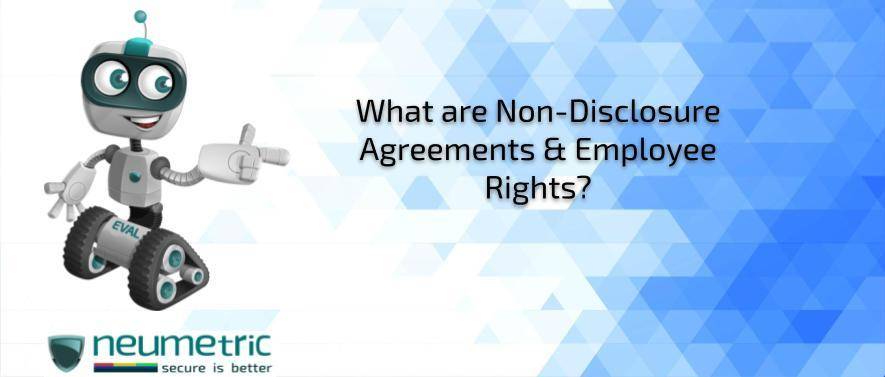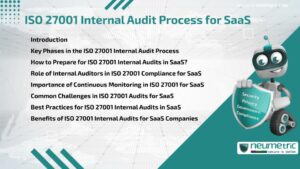Table of Contents
ToggleNon-Disclosure Agreements & Employee Rights
To cover-up hostile work environments, companies from different industries are being exposed for their corrupt NDA practices. Many high-profile cases have demonstrated the abuse of Non-Disclosure Agreements [NDAs] so as to conceal bullying, discrimination, harassment, and toxic workplace cultures.
According to the latest research:
- 60% of U.S. workers, 55% of U.K. workers, and 50% of Indian workers have experienced workplace discrimination with 40% being retaliated against after reporting it.
- 90% of workers have been bullied with 61% of bullies being their bosses.
- 54% of women have been sexually touched against their will in the workplace with 95% of their abusers being unpunished after reporting it.
- Over 1/3 of workers are bound by NDAs demanding their silence.
Mostly NDAs have a confidentiality clause or non-disparagement provision, according to which, current or former employees are prohibited from speaking negatively about the company and disclosing their experience. If an employee violates the rule, he risks facing hundreds of thousands of dollars in fines or retaliation. Because of this, 87-94% of victims never come forward to report an incident or their abuser.
Employee Non-Disclosure Agreements can give a hint on how the company views its employees. Since these vary from company to company, it is crucial to thoroughly read and understand the agreement before signing. Or else, employees can unknowingly sign away their rights and be silenced from speaking out. Here are 3 things that every employee must know about NDAs.
Imbalance of Power can make an Agreement Unenforceable?
Many employees are unaware of their rights, especially when it comes to their NDA. While Non-Disclosure Agreements are legally binding, there needs to be a balance of power in order for them to be enforceable. Most of the NDAs are connected with a severance package or final pay-check. If an employee signs it, he forfeits his right to speak out and if he doesn’t, he forfeits his right to receive a severance or final pay. According to a survey, 15.30% of tech employees feel silenced by their NDA. This survey broke down the responses from 26 companies where over 11% of Google employees and 30% of Tesla employees reported being silenced by their Non-Disclosure Agreements.
These days, it’s quite easy to see how workers can feel powerless when it comes to speaking out against bullying, harassment, or a hostile work environment due to their NDA. But actually, NDAs that prevent individuals from reporting harassment, discrimination or mistreatment to the proper authorities are unenforceable.
Do You Know That An Unreasonable or Vague Term Can Invalidate An Agreement?
Yes, if you haven’t heard about it before, then it’s high time you knew about this. An NDA should be reasonable and very specific about what is considered confidential and non-confidential. If the language used is too broad or unreasonable, it can actually void an agreement. Courts will also challenge agreements that are overly expansive or try to cover non-confidential information. Consequently, if the information becomes public knowledge, an NDA can no longer be enforced.
Many people believe that signing an NDA prevents individuals from exploring legal options or feeling bound to the contract with no way out. However, an NDA cannot prohibit an employee from filing a good faith complaint against an employer for violating the law. An employee can always file a complaint with the Occupational Safety & Health Administration (OSHA) or the Equal Employment Opportunity Commission (EEOC) among other agencies. While there are valid reasons for businesses to ask employees to sign NDAs, those reasons should be limited to protecting business practices and property information. It should not hamper culture or encourage employee harassment in the workplace.
Have You Heard About The Right To Seek Employer-Paid Legal Advice Before Signing?
Most commonly, Non-Disclosure Agreements are given when an employee is hired, terminated, or finalizing a settlement. When an employee is presented with an NDA, he has the right to request additional time before signing. Individuals can take at least 72 hours to read the agreement and seeking out an attorney to review and answer any questions is always advisable. Employees can also go back to the HR department and ask the same questions and compare responses.
Individuals have the right to seek independent legal advice when presented with an NDA and have their employer pay for the service. There are clauses that many people skim through and these clauses tend to limit their rights. Some of these may be a non-disparagement, non-compete, or liquidated damages clause.
No one signs an NDA with the intention that something bad would happen, but, it’s important to be prepared. When reading through an NDA, you must seek clarification on vague and unfamiliar terms and understand the scope of the agreement. Before signing, you can ask certain questions:
- What is measured as confidential?
- What kind of information is prohibited from being disclosed?
- What is the duration of time the information must be kept confidential, after leaving the company?
- What kind of clauses are present throughout the agreement?
- What are the consequences of breaching?
Stripping the NDA of the elements that deprive victims of their voices and redefining the terms and conditions of what it should be used for, encourages better values and more thoughtful and professional conduct in the workplace. Therefore, it is crucial that employees do not sign an agreement that they don’t fully understand or are not comfortable with. Consulting a qualified attorney is always advisable.
Neumetric, a cyber security services, consulting & products organization, can help you reduce your security cost without compromising your security posture. Our years of in-depth experience in handling security for organizations of all sizes & in multiple industries make it easier for us to quickly execute cost-cutting activities that do not bring value to you, while you continue focusing on the business objectives of the Organization.





